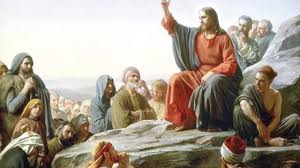The Historical Jesus: A Figure of Faith and Controversy
history of Jesus The figure of Jesus of Nazareth stands as one of the most influential figures in human history. His life, teachings, death, and resurrection form the cornerstone of Christianity, a religion followed by billions worldwide. However, the historical Jesus remains a complex and enigmatic figure, shrouded in both religious belief and scholarly inquiry.

The Historical Context
Jesus was born in Judea, a province of the Roman Empire, during the reign of Emperor Augustus. This period was marked by significant political and religious upheaval, with the Jewish people yearning for a Messiah to liberate them from Roman oppression. The Jewish religious landscape was dominated by the Pharisees, Sadducees, and Essenes, each with their own interpretations of Jewish law and tradition.
The Gospels and the Quest for the Historical Jesus
Our primary sources of information about Jesus are the four Gospels: Matthew, Mark, Luke, and John. These texts, written decades after Jesus’ death, offer differing perspectives on his life and teachings. While they are considered sacred texts by Christians, they are also subject to historical and literary analysis.
The “Quest for the Historical Jesus” is a scholarly endeavor to separate the historical figure from the mythological and theological accretions that have accumulated over centuries. Scholars examine the Gospels and other historical sources to reconstruct a more accurate picture of Jesus’ life and teachings.
Key Events in the Life of Jesus
- Birth and Early Life: Jesus was born in Bethlehem to Mary and Joseph. His birth is celebrated as Christmas by Christians worldwide.
- Baptism by John the Baptist: Jesus was baptized in the Jordan River by John the Baptist, marking the beginning of his public ministry.
- Ministry and Teachings: Jesus traveled throughout Galilee and Judea, preaching about the Kingdom of God, a spiritual realm of peace and justice. He performed miracles, such as healing the sick and raising the dead, which furthered his reputation and attracted followers.
- Crucifixion and Death: Jesus was arrested by Roman authorities and crucified in Jerusalem, a form of execution reserved for criminals. His death is commemorated on Good Friday.
- Resurrection: According to Christian belief, Jesus rose from the dead on the third day after his crucifixion, an event celebrated as Easter.

The Teachings of Jesus
Jesus’ teachings, often referred to as the Sermon on the Mount, emphasized love, forgiveness, and compassion. He advocated for social justice, equality, and peace. Some of his most famous teachings include:
- The Golden Rule: “Do unto others as you would have them do unto you.”
- Love Your Enemies: “Love your enemies and pray for those who persecute you.”
- The Beatitudes: A series of blessings for the poor in spirit, the meek, the merciful, and the peacemakers.
The Impact of Jesus
Jesus’ life and teachings have had a profound impact on human history. Christianity, the religion based on his teachings, has shaped Western civilization and continues to influence global culture. His message of love, forgiveness, and social justice continues to inspire people around the world.
However, the historical Jesus remains a subject of debate and interpretation. While religious believers view him as the Son of God, scholars continue to explore his life and teachings within a historical and cultural context. The quest for the historical Jesus is an ongoing endeavor that challenges us to critically examine our sources and to form our own understanding of this enigmatic figure.
